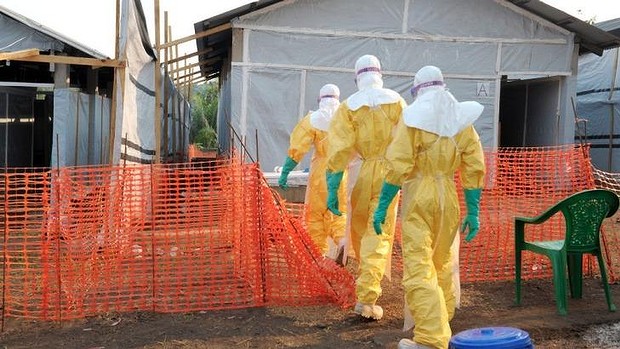
The number of people with Ebola in West Africa has risen above 16,000, with the death toll from the outbreak reaching almost 7,000, according to new figures from the World Health Organization (WHO).
The number of deaths is more than 1,000 higher than the figure issued by the WHO just two days ago, but it is thought to include deaths that have gone unreported in the weeks or months since the outbreak began. Most of the new deaths were recorded in Liberia.
The WHO has warned that its figures could be a significant underestimation of the number of infections and deaths. Data from the outbreak has been patchy and the totals often rise considerably when backlogs of information are cleared. The latest confirmed data shows that almost half those known to have been infected with Ebola have died. However, the WHO has previously estimated a fatality rate of approximately 70 percent in the current outbreak after accounting for underreporting.
The outbreak has been centered on Guinea, Liberia and Sierra Leone. They account for the vast majority of the cases reported to date, with about three dozen cases elsewhere.
Liberia has recorded the highest number of cases and deaths, but the rate of infection appears to be leveling off there. The disease is now spreading fastest in Sierra Leone, where health officials have reported an average of 400 to 500 new cases each week for several weeks.
According to Anthony Banbury, head of the U.N. Mission for Ebola Emergency Response, the outbreak in Sierra Leone is now concentrated in the capital, Freetown, its surrounding areas, and the northern Port Loko district, which together account for about 65 percent of the country’s new infections. He warned that a lack of treatment beds — and health workers to staff them — threatens the country’s ability to contain the virus.
“The critical gap right now in those locations are beds. It’s as simple that: We need more beds,” Banbury told the Associated Press. Only about 350 of some 1,200 promised treatment beds are up and running, according to the latest WHO figures.
Mali, the sixth West African nation affected by the epidemic, has started recording new infections after sick people crossed over from neighboring Guinea. It has reported two new cases this week, bringing the country’s total number of cases to eight. Six of these people have died, while a further 285 people who came into contact with them are being monitored but have shown no signs of the disease.

The 2014 outbreak emerged near Guinea’s border with Sierra Leone and Liberia, a highly mobile area where the virus was quickly dispersed.
This outbreak has been the worst in history partly because it occurred in a highly mobile region, where Liberia, Guinea and Sierra Leone meet, and quickly spread to their respective capital cities.
Another UN agency, the United Nations Development Program (UNDP), warned this week that food shortages had put families in the three countries at risk of both malnutrition and under-nutrition.
According to the UNDP report, 70 percent of people interviewed in Sierra Leone had been eating only one meal a day since the outbreak, rather than two or three. Restrictions on movement had led to panic buying, food shortages and severe price hikes, the agency said.
The WHO said this week that the Ebola outbreak in the Democratic Republic of Congo had ended, as it did in Nigeria in late October. Its guidelines state that a country can be declared free of the virus once 42 days have passed and no new cases have been detected. The 42 days represents twice the maximum incubation period for Ebola.
Scientists said on Thursday that progress towards creating an Ebola vaccine had been made. An experimental vaccine has triggered promising immune responses from 20 healthy volunteers in a preliminary trial, suggesting that it should protect against infection.
Trials of a device that can diagnose an Ebola infection within 15 minutes are about to start in Guinea. The test, which can analyze blood or saliva, is six times faster than those being used in west Africa.
